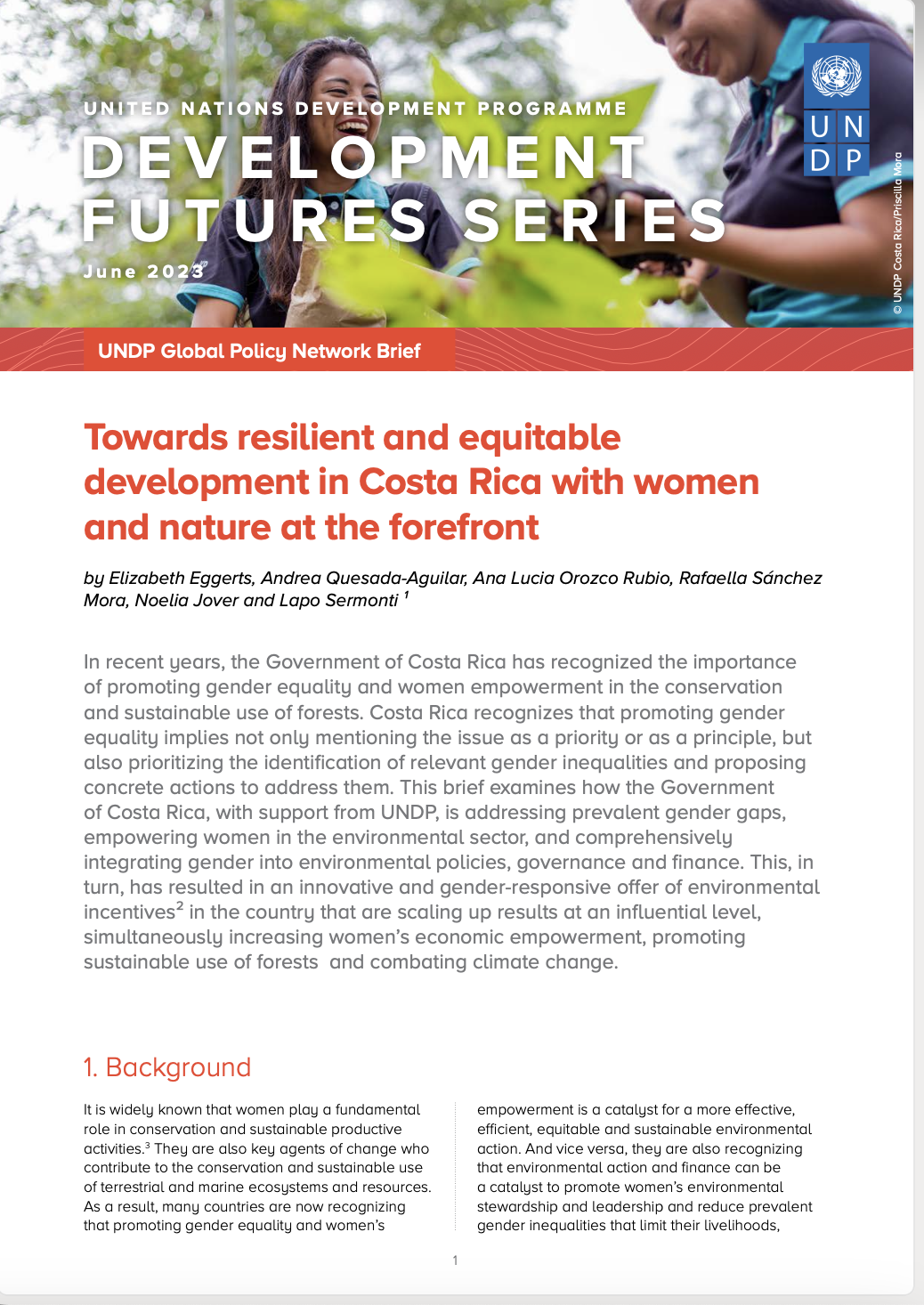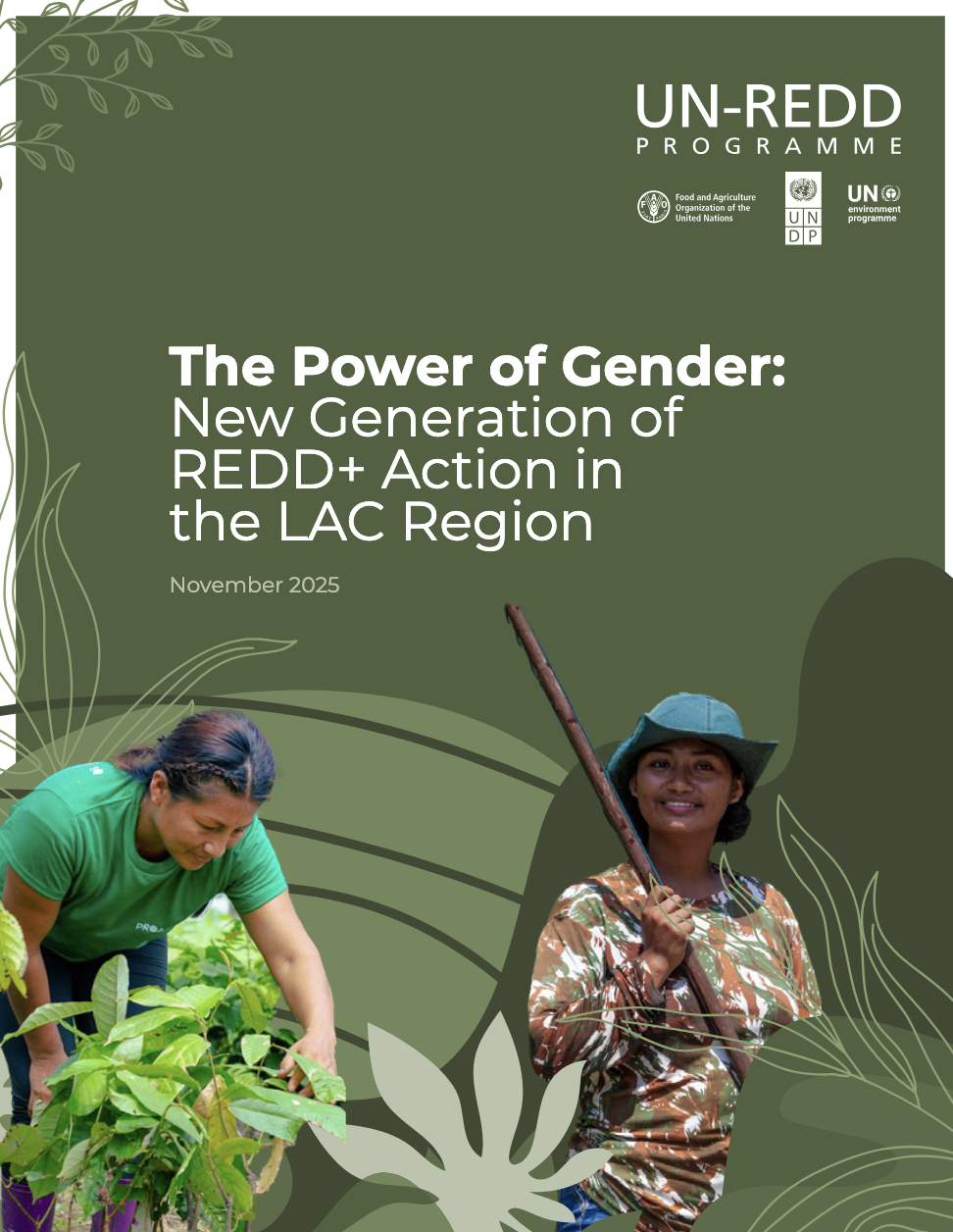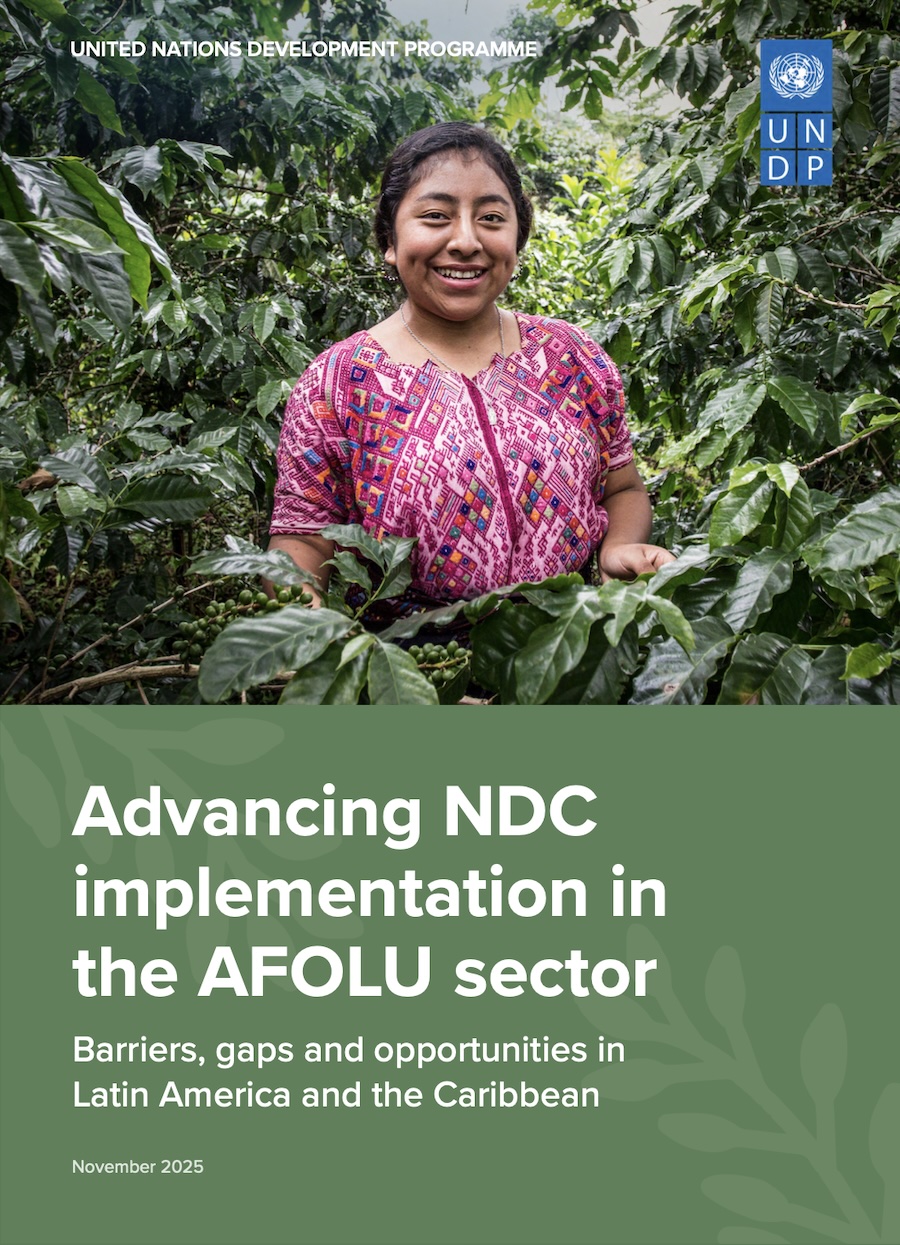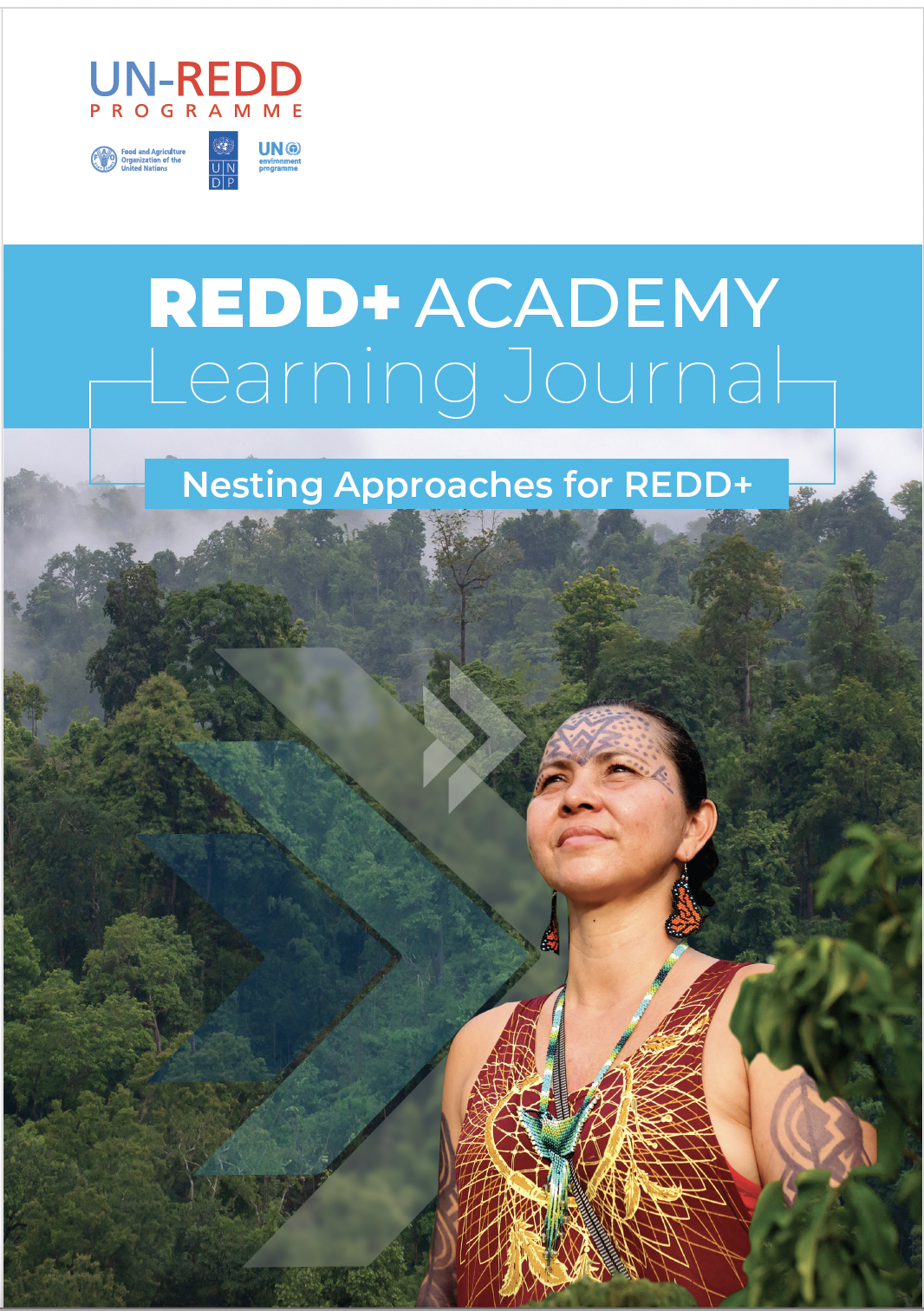
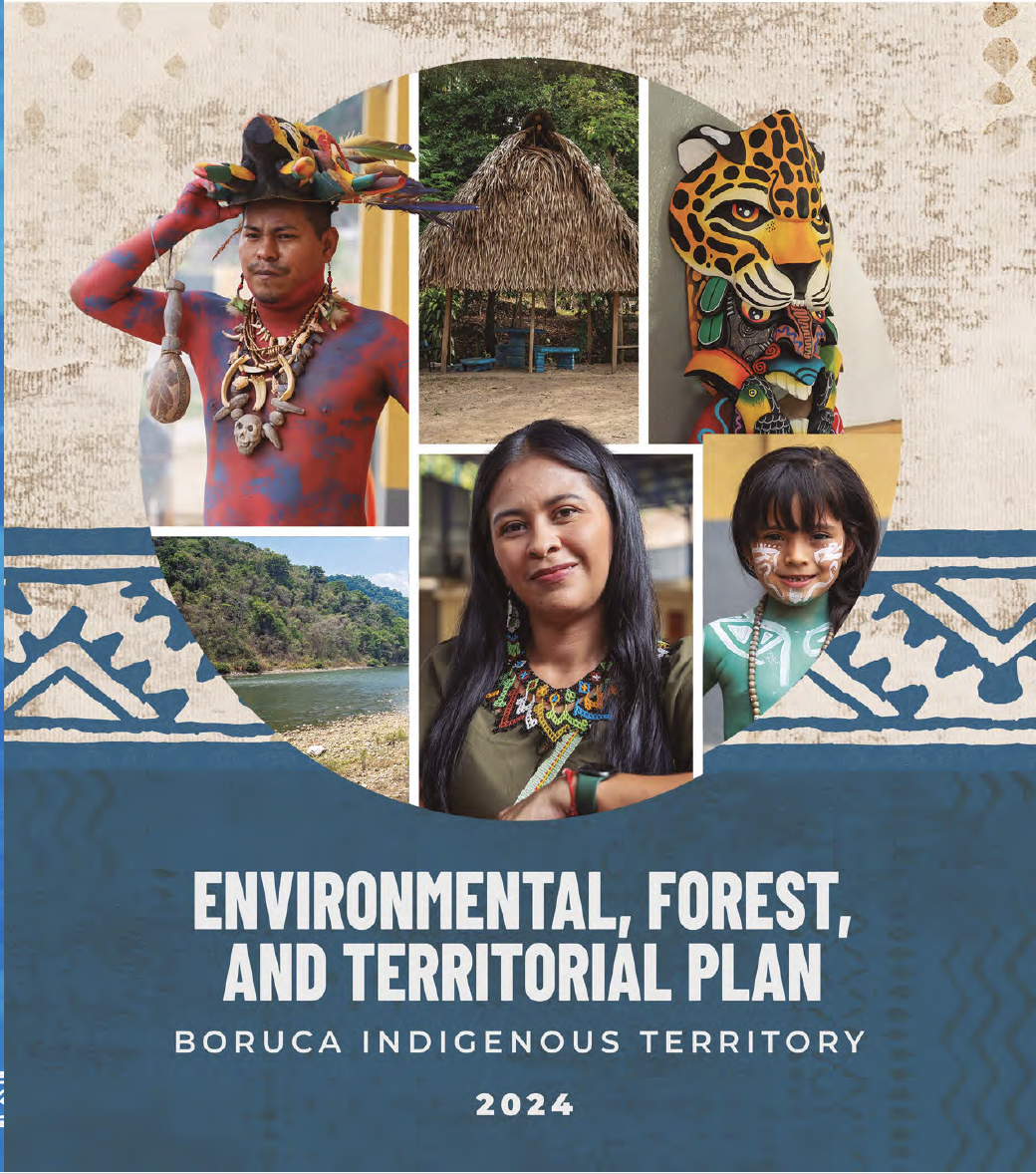
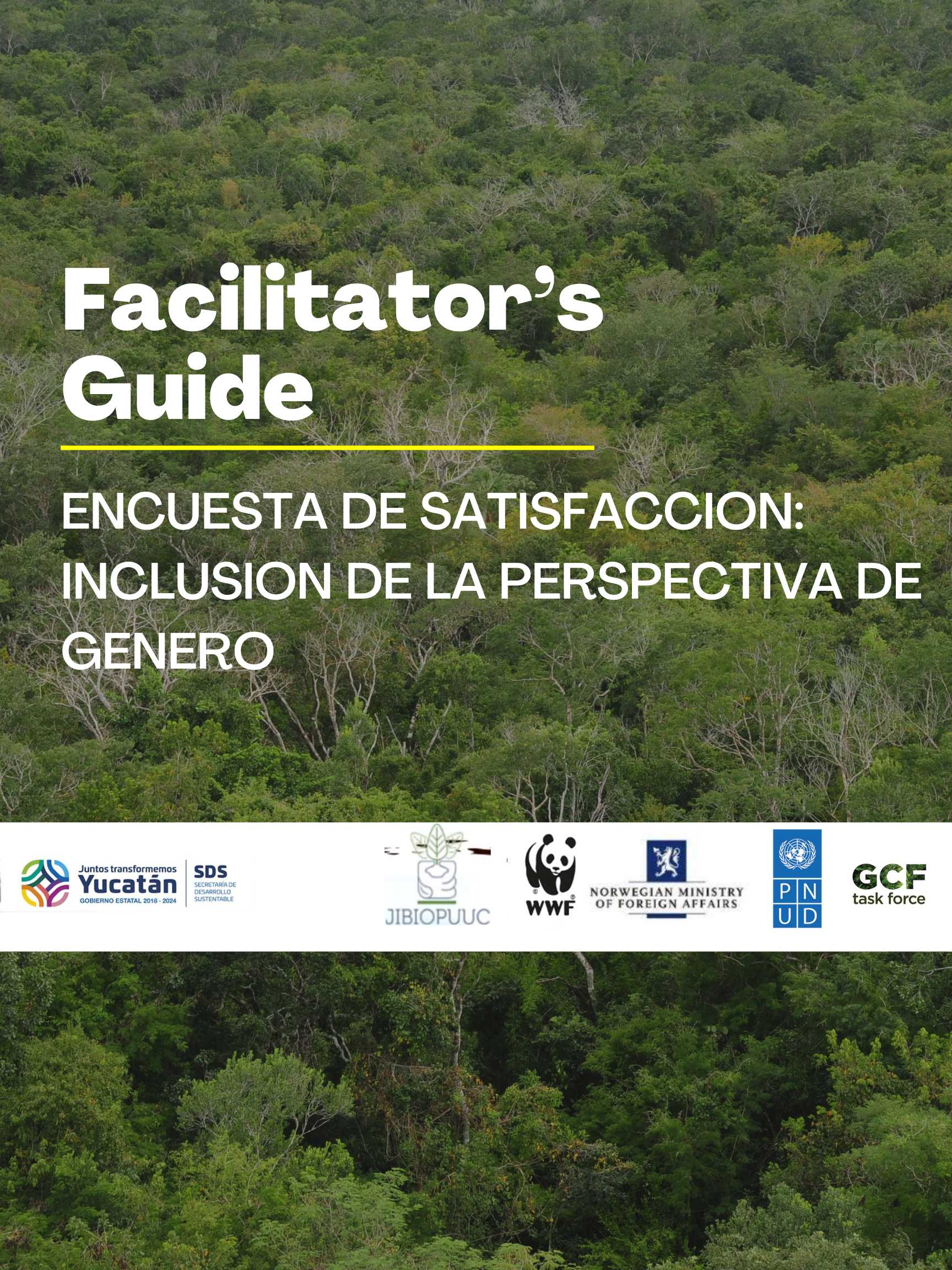
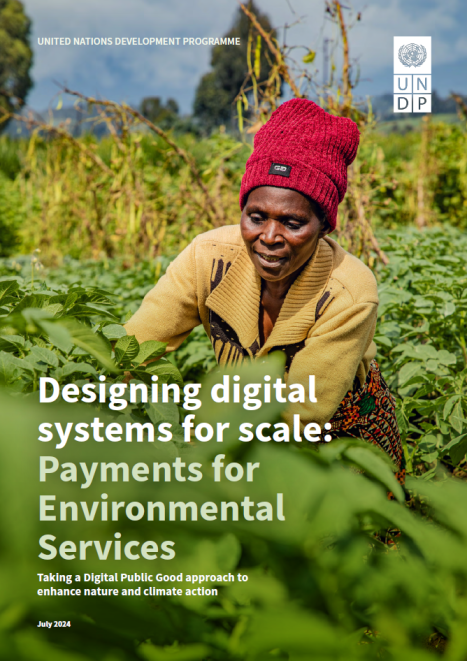
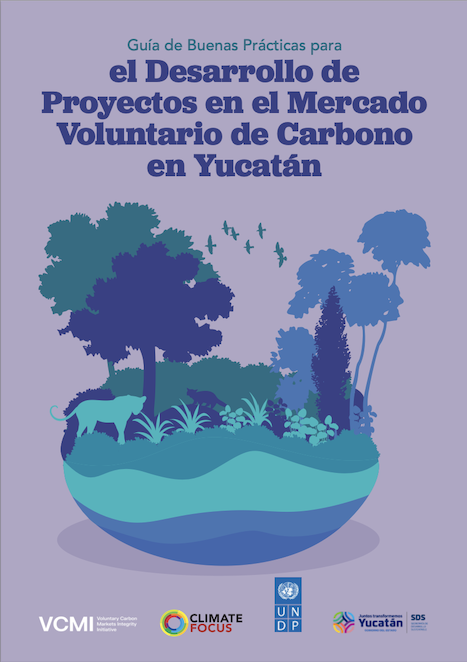
This quarterly report presents the aggregated global information of the 63 countries currently included in PLANT, presented through countries' GHG emissions profiles, current information on Nationally Determined Contributions (NDCs), Warsaw Framework for REDD+, transparency, carbon market potential, and other assessment categories.
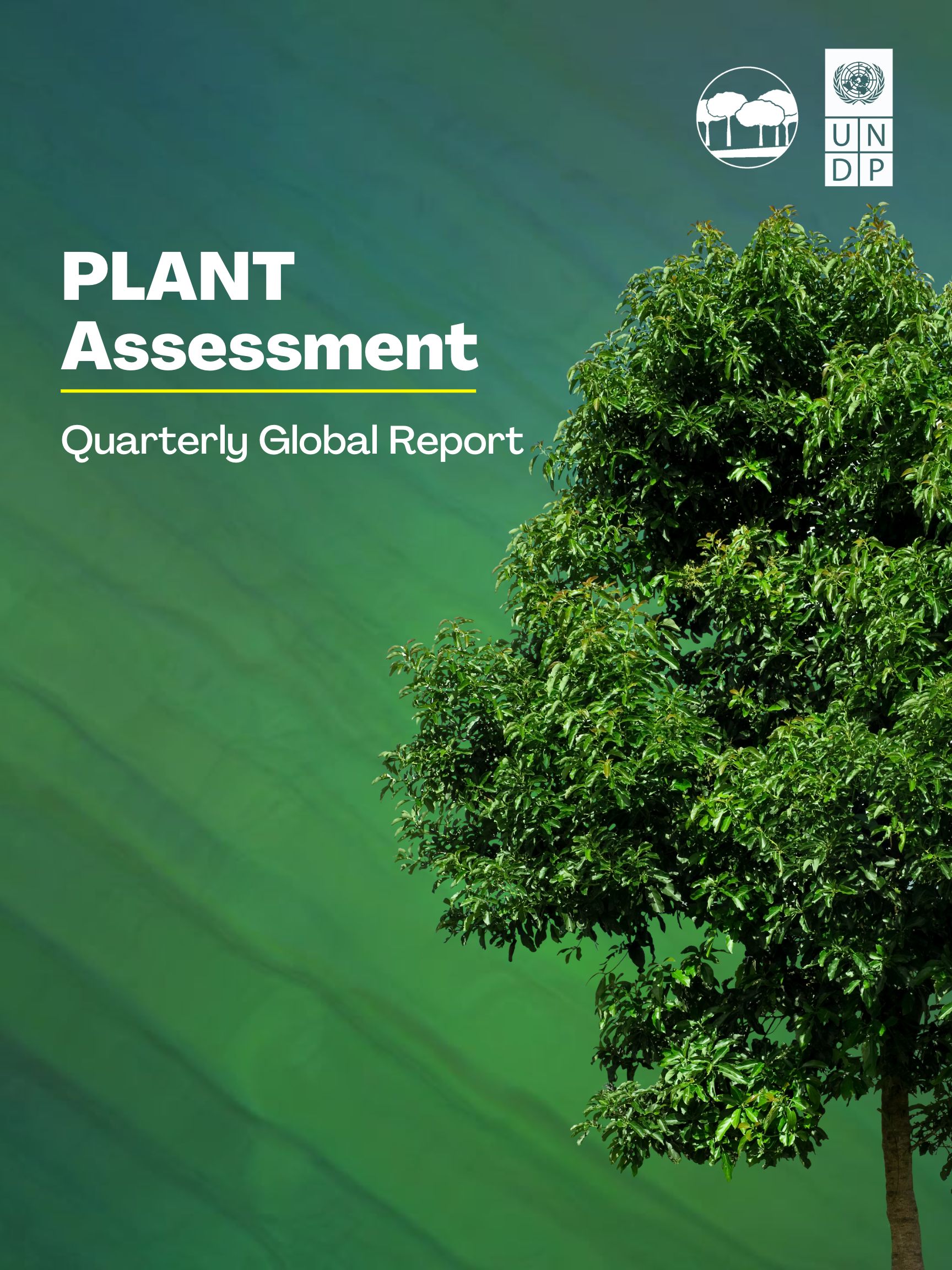
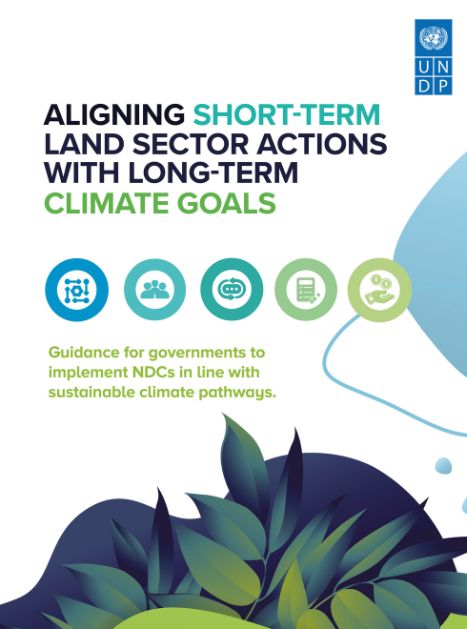
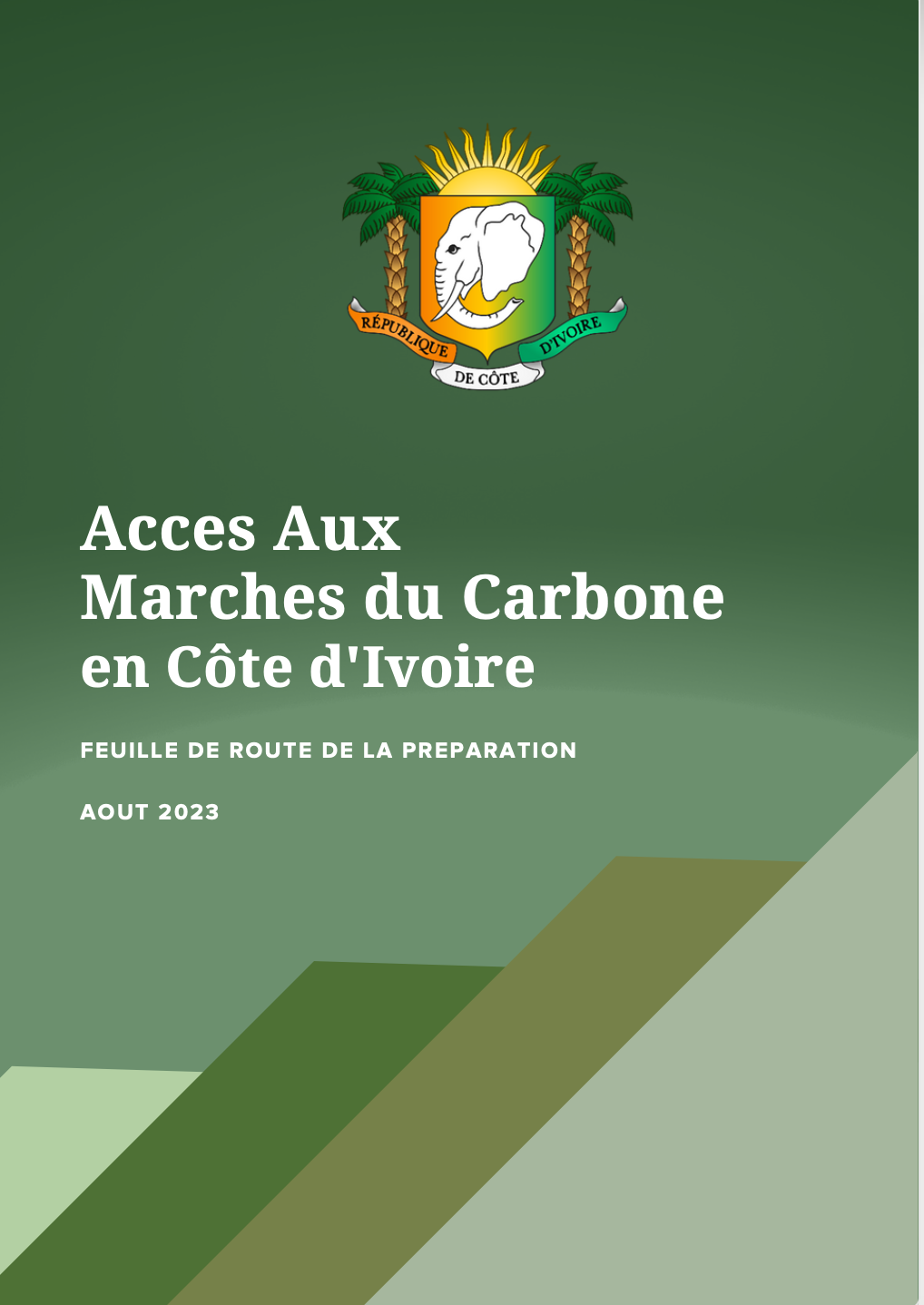
In recent years, the Government of Costa Rica has recognized the importance of promoting gender equality and women empowerment in the conservation and sustainable use of forests. Costa Rica recognizes that promoting gender equality implies not only mentioning the issue as a priority or as a principle, but also prioritizing the identification of relevant gender inequalities and proposing concrete actions to address them.
